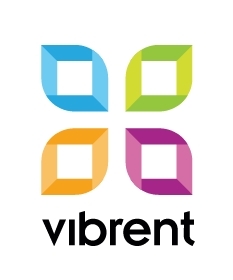Vibrent Health Digital Health Research Platform Optimizes Accessibility and User Experience for People with Disabilities to Increase Diverse Participation in Research
Vibrent Health Digital Health Research Platform Optimizes Accessibility and User Experience for People with Disabilities to Increase Diverse Participation in Research
Enabling the Use of Digital Tools for People with Varying Physical Abilities and Experience with Computer Devices, Websites and Apps Helps Researchers Recruit and Engage Diverse Cohorts to Meet Study Requirements
FAIRFAX, Va.--(BUSINESS WIRE)--Vibrent Health, a health technology startup, is helping researchers recruit and engage people with disabilities in research by ensuring that digital health research tools the company develops support people with disabilities and comply with government rules for accessibility. Making digital health technology products that accommodate people with disabilities can help researchers reach their inclusion goals and obtain more complete data by including diverse participants. Recruiting diverse individuals has become increasingly important in health research and can be a prerequisite for research sponsorship and funding.
More than 60 million people in the United States are living with disabilities. To make information and communication technology (ICT) and digital tools more accessible to this population, the Congress passed Section 508 of the Rehabilitation Act of 1973 and the Americans with Disabilities Act (ADA) of 1990. Because these laws can impact health research conducted using websites and other digital tools, Vibrent Health developed rigorous design and testing methods to ensure their mobile applications and websites comply with government regulations and support the recruitment and engagement of people with disabilities.
Vibrent Health is the Participant Technology Systems Center and builder of the Digital Health Research Platform used by the National Institutes of Health’s All of Us Research Program, a precision medicine research initiative that aims to recruit one million diverse people living in the United States. Vibrent developed mobile apps and websites for All of Us that have helped the program achieve its goal of enrolling diverse people who often do not participate in health research, which includes people with disabilities. To date, more than 702,471 participants have registered on the platform, of which 80 percent self-identify as being from groups that are historically underrepresented in biomedical research.
“Because differences between people can often lead to different responses to the same treatments or medication, having people with disabilities and other diverse people enrolled in health research is crucial for complete, high-quality data,” said Praduman “PJ” Jain, CEO of Vibrent Health. “Our goal is to the take the burden from the researchers when it comes to making digital research tools accessible and engaging to all people. When researchers use our tools, they know the technology has been deployed successfully nationally to create one of the largest longitudinal biomedical research databases of its kind.”
To assist Vibrent in creating digital tools that are accessible and usable for people with disabilities, the company formed a Participant Advisory Board of diverse members, including people with disabilities. The board members perform functional tests using the latest assistive technologies along with other manual methods to determine if the overall user experience is accessible. These tests then provide feedback which Vibrent uses in their development process to enhance user interactions and experiences.
“Vibrent treats health research participants as true core partners,” said Steve Mikita, chair of the PAB and one of two inaugural participant representatives on the All of Us Steering Committee. Mikita, who has very limited movement due to Spinal Muscular Atrophy, adds, “They want to make sure that these tools not only make sense to participants but also are relevant and beneficial to their lives.”
Additionally, Vibrent Health continually adds new tools to its engineering and testing process to validate accessibility and establish compliance during the software development life cycle. The company employs a dedicated team of specialists that continually assess Vibrent’s tools and the content the company produces to ensure they conform with the World Wide Web Consortium (W3C) Web Accessibility Initiative’s (WAI) Web Content Accessibility Guidelines (WCAG) 2.1, Level A and AA. As part of the accessibility program, Vibrent Health assigns designated individuals as electronic content editors trained in the functions of information technology accessibility tools and techniques. The team conducts regular compliance auditing to monitor, detect and incorporate any WCAG 2.1 changes. Remediation efforts are then validated by a team of testers who use a representative sample of different disabilities.
“People with disabilities will be able and more likely to participate in health research when afforded proper accommodations for accessibility, enabling new data sources,” said Jain. “As more researchers feel confident that digital research methods are accessible and compliant with governmental regulations and meet the needs of broader populations, they will be more willing to engage with digital tools, which can enable faster, more comprehensive data collection. Ultimately, accessible mobile apps and websites can help accelerate medical discoveries that can improve human health for all people, regardless of physical abilities or disabilities.”
About Vibrent Health
Vibrent Health develops digital health technology and research tools for health organizations, researchers and research participants. Powering the next generation of precision medicine, Vibrent’s scalable technology platform for individual and population health provides actionable insights to help accelerate medical discoveries. Vibrent Health is proud to serve, since 2017, as the Participant Technology Systems Center for the National Institutes of Health’s All of Us Research Program, which aims to collect health data from 1 million or more people to support a wide variety of research studies. This work is supported under NIH funding award U24OD02316. To learn more, visit vibrenthealth.com.
Contacts
Pearson Brown
(310) 994-7057
pbrown@vibrenthealth.com
